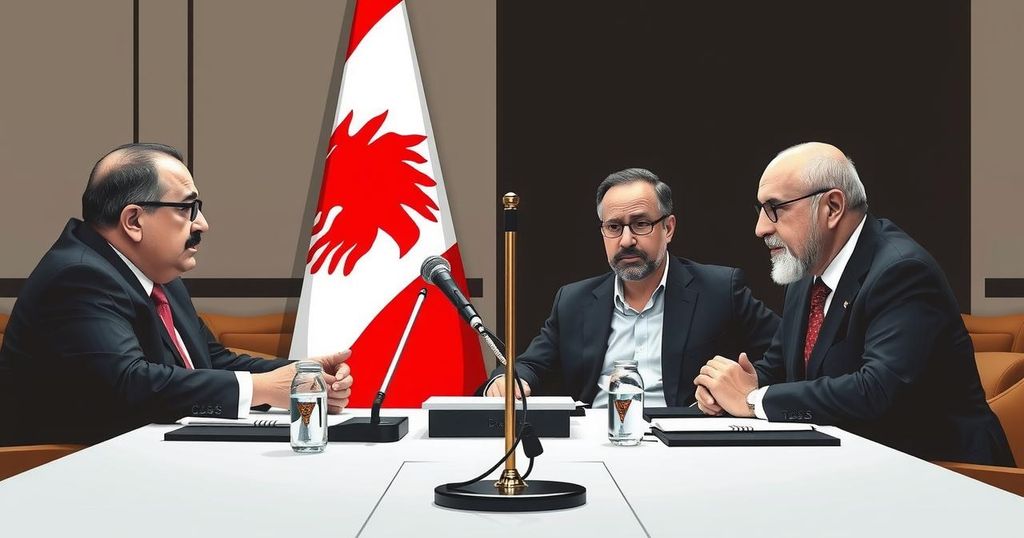Lebanon Leaders Engage in Urgent Talks to Resolve Presidential Vacancy
Lebanese leaders are negotiating ahead of a parliamentary session for the presidential election, with Army chief Joseph Aoun as the likely candidate amidst ongoing political fragmentation and external diplomatic efforts from France and the US. The divided political landscape continues to challenge consensus, dimming the prospects for filling the presidency after over two years without leadership.
Lebanese political leaders are engaging in discussions aimed at electing a president ahead of an impending parliamentary session. Despite the ongoing economic and political turmoil and the absence of a presidential figure for over two years, divisions remain, particularly between the Shiite Muslim group Hezbollah and its rivals. Army chief Joseph Aoun is viewed as the frontrunner, with supporters claiming he possesses the ability to enhance military effectiveness in southern Lebanon. However, much uncertainty persists as various factions show reluctance towards his candidacy in this thirteenth attempt to fill the presidency since Michel Aoun’s term expired in October 2022.
The delicate balance of power requires agreement on a candidate before a successful parliamentary vote can occur. Recent external pressures, especially from France and the United States, have intensified following Hezbollah’s weakened status post-war. French envoy Jean-Yves Le Drian, among other diplomats, is advocating for a speedy resolution to elect a president, stressing the urgency of reforming Lebanese institutions. Furthermore, regional players like Saudi Arabia are reportedly influencing various blocs to support Joseph Aoun, emphasizing the necessity of elective leadership to instigate crucial reforms, especially given the ongoing financial crisis that took root in 2019.
As Lebanon’s caretaker Prime Minister Najib Mikati expressed optimism about the prospect of electing a president, the divided political spectrum remains a significant hurdle. It is paramount to secure backing from diverse factions, especially the Christian parties, to achieve the requisite consensus. Notable opposition to Joseph Aoun stems from major Christian groups, while discussions continue regarding alternative candidates. Until a coherent agreement is reached, the potential for instability remains a pressing concern for Lebanon’s future.
This article discusses the ongoing political turmoil in Lebanon, where the lack of a president for more than two years has exacerbated economic challenges. The situation is complicated by the power dynamics between Hezbollah and its adversaries. The political environment is characterized by a need for consensus among Lebanon’s divided factions to elect a leader, as external diplomatic efforts, especially from France and the US, highlight the urgency of reforming the country’s institutions.
The discussions among Lebanon’s political leaders underscore the intricate challenges in electing a president amidst a protracted absence of leadership. Army chief Joseph Aoun’s candidacy highlights ongoing divisions among parties, particularly among Christian factions. While external pressures are mounting for consensus, geopolitical complexities and internal opposition complicate the pathway to rejuvenating Lebanon’s governance. The outcome of the parliamentary session remains critical for Lebanon’s political stability and economic recovery.
Original Source: www.barrons.com




Post Comment